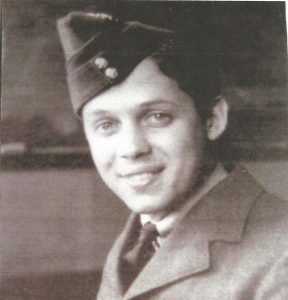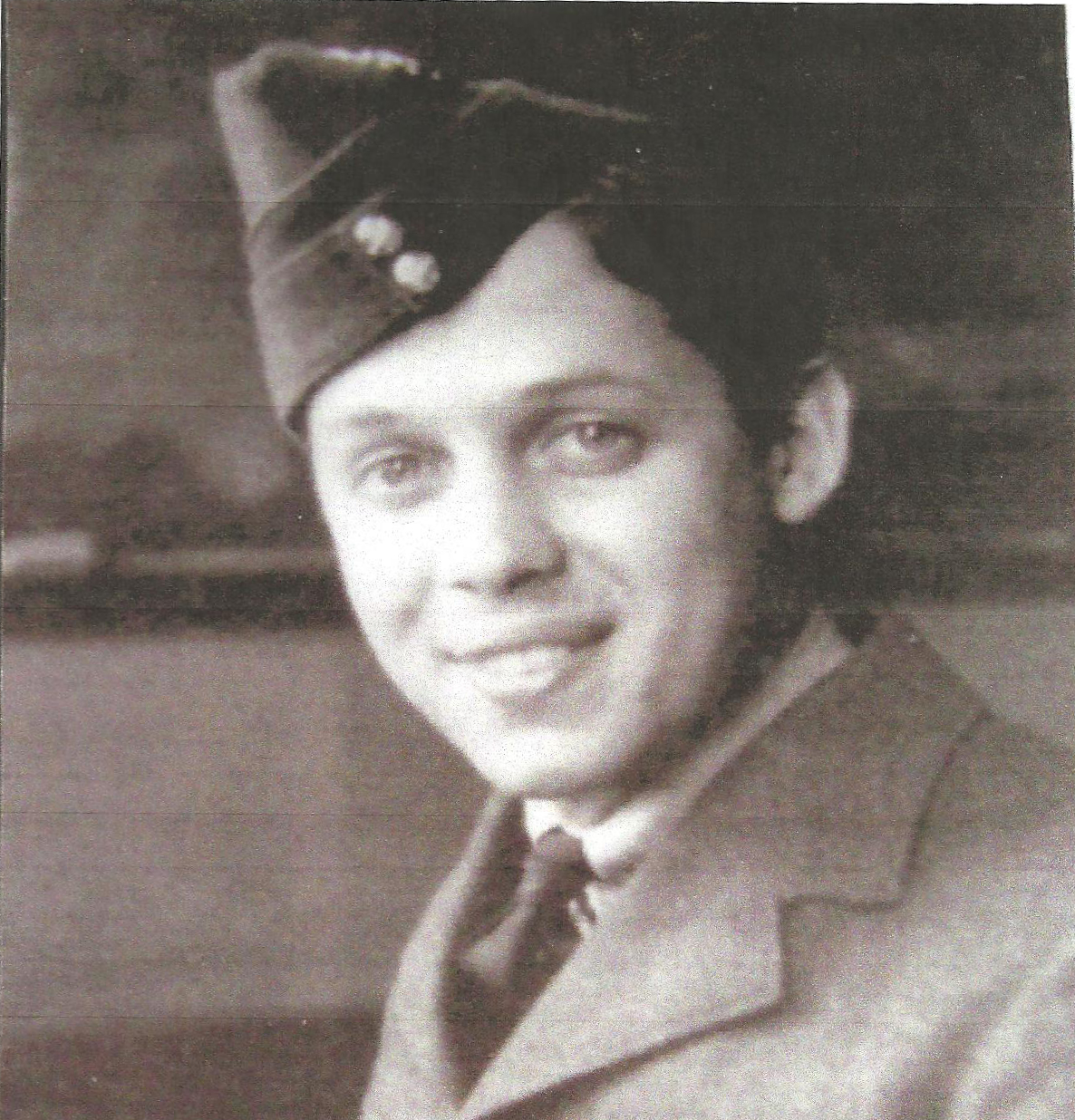
| Rank | Sergeant Pilot |
| Service # | R68200 |
| Unit # | R.C.A.F., No. 11 Operational Training Unit |
| Resident | Wheatley |


Born 22/06/1919 in Chatham, ON, living in Wheatley, ON. The son of Mr. and Mrs. Houston of Wheatley.
Rank: Sergeant (Pilot), Royal Canadian Air Force, # 11 Operational Training Unit. KIA – Date of Death: 22/07/1941,.
Though born in Chatham he grew up in Wheatley, ON. where he attended Wheatley Continuation School and the United Church and was involved in other community activities.
Enlisting in 1940 with the RCAF he trained at Trenton, ON. and Regina, SK. He was posted overseas in 1941.
Fred was reported WJ 13/06/40 to left to enlist in the RCAF, along with Roy Walker. The WJ 15/08/40 reported at RCAF – Toronto and was home on a weekend leave. The WJ 25/07/40 reported that after a certain examination he expected being sent on to Toronto-Manning. The WJ6/03/41 reported that Fred of RCAF-McLeod AB. had received his wings. The WJ (date unknown) was stationed at RCAF – McLeod, AB. He was on a leave of only a few days and expected to be leaving for a different destination
On the 20th of August 1941 the CDN reported that: “The airman was not killed in overseas flying accident as was originally believed by his parents. The Wheatley man was killed when his plane collided with a German Junkers plane in battle over a village in the home country [England]. The plane crashed to the ground in flames about one mile apart, the bodies from both aircraft were recovered and Frederick was buried with full military honours in a British cemetery.”
The story on the CVWM had a slightly different story. Frederick’s aircraft was on a training flight in a Wellington bomber when his plane collided with a Junkers fighter-bomber lurking over England. Both aircraft (with a total of 12 aircrew) were destroyed and all were killed.
A very different story is found in “They Shall Not Grow Old as follows:
Flying Wellington # R1334 during a night flying training from Ashwell to Babcock to Hertfordshire in England. They were attacked and shot down, according to Sqd. Leader James C. Lovelace D.F.C. of Nova Scotia “A Wellington aircraft captured by the enemy, joined the circuit and shot this aircraft down.”
It was common for enemy aircraft to sneak into the stream of bombers returning at night and follow them to their station or shoot unsuspecting aircraft down or to bomb the station.
KIA – Date of Death: 22/07/1941.
Casualty Type: Commonwealth War Dead, Grave/Memorial Reference: Row CC. Grave 11. Cemetery: BASSINGBOURN CUM KNEESWORTH CEMETERY.
The WJ 24/07/41 reported that a cablegram was received announcing the death of Sgt. Fred Houston of the RCAF, formerly of Wheatley. “Fred had been in England about three months for further training and had been piloting some of the biggest bombers now in service
Recent letters received from him stated that he was in the best of health and liked living in England.
His passing was widely mourned. He was very popular with all his friends and acquaintances and had made rapid progress in the Air Force.
The WJ 14/08/41 reported that a fellow officer had enclosed a clipping from a local paper said in part: The British plane crashed after a collision with a Junkers bomber over a village in Home Countries. Wreckage of two machines felling fields a mile apart and caught fire.
The bodies of the British and German airmen were recovered.
To his parents the officer “expressed in a manner which spoke for it’s self. “Your son died a hero’s death. May you seek solace in the fact that his life was given freely for the cause of freedom, which is costing a serve price, but will be accomplished with men of his caliber. I was proud to have Fred as a friend . I attended the funeral and he received full military honours..
The story on the CVWM had a slightly different story. Frederick’s aircraft was on a training flight in a Wellington bomber when his plane collided with a Junkers fighter-bomber lurking over England. Both aircraft (with a total of 12 aircrew) were destroyed and all were killed.
It was common for enemy aircraft to sneak into the stream of bombers returning at night and follow them to their station to shoot unexpected aircraft down or to bomb the station.
Another letter from an English family with whom Fred had become acquainted expressed in making his acquaintance, sorrow in his loss, and pride in knowing one of the Dominion’s heroes. It also spoke of the deep feeling the people in the old land have for the boys from the Dominions who are ready to give “all” to the defense of the “Old Country”
In closing “He rests in a peaceful English Cemetery, with several other flying boys.
ADDITIONAL INFORMATION
| Sources | They Shall Grow Not Old, Wheatley Journal (24-03-2010), CVWM(P) |
Notice something wrong with this record? Or, do you have something to add? Report it using our online form.


